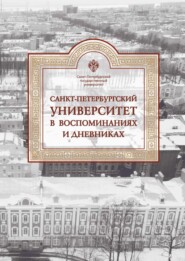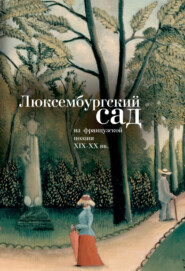По всем вопросам обращайтесь на: info@litportal.ru
(©) 2003-2024.
✖
The German Classics of the Nineteenth and Twentieth Centuries, Volume 02
Настройки чтения
Размер шрифта
Высота строк
Поля
Just so is there drawn through Ottilie Is diary, a thread of attachment and affection which connects it all together, and characterizes the whole. And thus these remarks, these observations, these extracted sentences, and whatever else it may contain, were, to the writer, of peculiar meaning. Even the few separate pieces which we select and transcribe will sufficiently explain our meaning.
FROM OTTILIE'S DIARY
"To rest hereafter at the side of those whom we love is the most delightful thought which man can have when once he looks out beyond the boundary of life. What a sweet expression is that—'He was gathered to his fathers!'"
"Of the various memorials and tokens which bring nearer to us the distant and the separated—none is so satisfactory as a picture. To sit and talk to a beloved picture, even though it be unlike, has a charm in it, like the charm which there sometimes is in quarrelling with a friend. We feel, in a strange sweet way, that we are divided and yet cannot separate."
"We entertain ourselves often with a present person as with a picture. He need not speak to us, he need not look at us, or take any notice of us; we look at him, we feel the relation in which we stand to him; such relation can even grow without his doing anything toward it, without his having any feeling of it: he is to us exactly as a picture."
"One is never satisfied with a portrait of a person that one knows. I have always felt for the portrait-painter on this account. One so seldom requires of people what is impossible, and of them we do really require what is impossible; they must gather up into their picture the relation of every body to its subject, all their likings and all dislikings; they must not only paint a man as they see him, but as every one else sees him. It does not surprise me if such artists become by degrees stunted, indifferent, and of but one idea; and indeed it would not matter what came of it, if it were not that in consequence we have to go without the pictures of so many persons near and dear to us."
"It is too true, the Architect's collection of weapons and old implements, which were found with the bodies of their owners, covered in with great hills of earth and rock, proves to us how useless is man's so great anxiety to preserve his personality after he is dead; and so inconsistent people are, the Architect confesses to have himself opened these barrows of his forefathers, and yet goes on occupying himself with memorials for posterity."
"But after all why should we take it so much to heart? Is all that we do, done for eternity? Do we not put on our dress in the morning, to throw it off again at night? Do we not go abroad to return home again? And why should we not wish to rest by the side of our friends, though it were but for a century?"
"When we see the many gravestones which have fallen in, which have been defaced by the footsteps of the congregation, which lie buried under the ruins of the churches, that have themselves crumbled together over them, we may fancy the life after death to be as a second life, into which a man enters in the figure, or the picture, or the inscription, and lives longer there than when he was really alive. But this figure also, this second existence, dies out too, sooner or later. Time will not allow himself to be cheated of his rights with the monuments of men or with themselves."
It causes us so agreeable a sensation to occupy ourselves with what we can only half do, that no person ought to find fault with the dilettante, when he is spending his time over an art which he can never learn; nor blame the artist if he chooses to pass out over the border of his own art, and amuse himself in some neighboring field. With such complacency of feeling we regard the preparation of the Architect for painting the chapel. The colors were got ready, the measurements taken, the cartoons designed. He had made no attempt at originality, but kept close to his outlines; his only care was to make a proper distribution of the sitting and floating figures, so as tastefully to ornament his space with them.
The scaffoldings were erected. The work went forward; and as soon as anything had been done on which the eye could rest, he could have no objection to Charlotte and Ottilie coming to see how he was getting on.
The life-like faces of the angels, their robes waving against the blue sky-ground, delighted the eye, while their still and holy air calmed and composed the spirit, and produced the most delicate effect.
The ladies ascended the scaffolding to him, and Ottilie had scarcely observed how easily and regularly the work was being done when the power which had been fostered in her by her early education at once appeared to develop. She took a brush, and with a few words of direction, painted a richly folding robe, with as much delicacy as skill.
Charlotte, who was always glad when Ottilie would occupy or amuse herself with anything, left them both in the chapel, and went to follow the train of her own thoughts, and work her way for herself through her cares and anxieties which she was unable to communicate to a creature.
When ordinary men allow themselves to be worked up by common every-day difficulties into fever-fits of passion, we can give them nothing but a compassionate smile. But we look with a kind of awe on a spirit in which the seed of a great destiny has been sown, which must abide the unfolding of the germ, and neither dare nor can do anything to precipitate either the good or the ill, either the happiness or the misery, which is to arise out of it.
Edward had sent an answer by Charlotte's messenger, who had come to him in his solitude. It was written with kindness and interest, but it was rather composed and serious than warm and affectionate. He had vanished almost immediately after, and Charlotte could learn no news about him; till at last she accidentally found his name in the newspaper, where he was mentioned with honor among those who had most distinguished themselves in a late important engagement. She now understood the method which he had taken; she perceived that he had escaped from great danger; only she was convinced at the same time that he would seek out greater; and it was all too clear to her that in every sense he would hardly be withheld from any extremity.
She had to bear about this perpetual anxiety in her thoughts, and turn which way she would, there was no light in which she could look at it that would give her comfort.
Ottilie, never dreaming of anything of this, had taken to the work in the chapel with the greatest interest, and she had easily obtained Charlotte's permission to go on with it regularly. So now all went swiftly forward, and the azure heaven was soon peopled with worthy inhabitants. By continual practice both Ottilie and the Architect had gained more freedom with the last figures; they became perceptibly better. The faces, too, which had been all left to the Architect to paint, showed by degrees a very singular peculiarly. They began all of them to resemble Ottilie. The neighborhood of the beautiful girl had made so strong an impression on the soul of the young man, who had no variety of faces preconceived in his mind, that by degrees, on the way from the eye to the hand, nothing was lost, and both worked in exact harmony together. Enough; one of the last faces succeeded perfectly; so that it seemed as if Ottilie herself was looking down out of the spaces of the sky.
They had finished with the arching of the ceiling. The walls they proposed to leave plain, and only to cover them over with a bright brown color. The delicate pillars and the quaintly molded ornaments were to be distinguished from them by a dark shade. But as in such things one thing ever leads on to another, they determined at least on having festoons of flowers and fruit, which should, as it were, unite heaven and earth. Here Ottilie was in her element. The gardens provided the most perfect patterns; and although the wreaths were as rich as they could make them, it was all finished sooner than they had supposed possible.
It was still looking rough and disorderly. The scaffolding poles had been run together, the planks thrown one on the top of the other; the uneven pavement was yet more disfigured by the parti-colored stains of the paint which had been spilt over it.
The Architect begged that the ladies would give him a week to himself, and during that time would not enter the chapel; at the end of it, one fine evening, he came to them, and begged them both to go and see it. He did not wish to accompany them, he said, and at once took his leave.
"Whatever surprise he may have designed for us," said Charlotte, as soon as he was gone, "I cannot myself just now go down there. You can go by yourself, and tell me all about it. No doubt he has been doing something which we shall like. I will enjoy it first in your description, and afterwards it will be the more charming in the reality."
Ottilie, who knew well that in many cases Charlotte took care to avoid everything which could produce emotion, and particularly disliked to be surprised, set off down the walk by herself and looked round involuntarily for the Architect, who, however, was nowhere to be seen and must have concealed himself somewhere. She walked into the church, which she found open. This had been finished before; it had been cleaned up, and service had been performed in it. She went on to the chapel door; its heavy mass, all overlaid with iron, yielded easily to her touch, and she found an unexpected sight in a familiar spot.
A solemn, beautiful light streamed in through the one tall window. It was filled with stained glass, gracefully put together. The entire chapel had thus received a strange tone, and a peculiar genius was thrown over it. The beauty of the vaulted ceiling and the walls was set off by the elegance of the pavement, which was composed of peculiarly shaped tiles, fastened together with gypsum, and forming exquisite patterns as they lay. This and the colored glass for the windows the Architect had prepared without their knowledge, and a short time was sufficient to have it put in its place.
Seats had been provided as well. Among the relics of the old church some finely carved chancel chairs had been discovered, which now were standing about at convenient places along the walls.
The parts which she knew so well now meeting her as an unfamiliar whole, delighted Ottilie. She stood still, walked up and down, looked and looked again; at last she seated herself in one of the chairs, and it seemed, as she gazed up and down, as if she was, and yet was not—as if she felt and did not feel—as if all this would vanish from before her, and she would vanish from herself; and it was only when the sun left the window, on which before it had been shining full, that she awoke to possession of herself and hastened back to the castle.
She did not hide from herself the strange epoch at which this surprise had occurred to her. It was the evening of Edward's birthday. Very differently she had hoped to keep it. How was not every thing to be dressed out for this festival and now all the splendor of the autumn flowers remained ungathered! Those sunflowers still turned their faces to the sky; those asters still looked out with quiet, modest eye; and whatever of them all had been wound into wreaths had served as patterns for the decorating a spot which, if it was not to remain a mere artist's fancy, was only adapted as a general mausoleum.
And then she had to remember the impetuous eagerness with which Edward had kept her birthday-feast. She. thought of the newly erected lodge, under the roof of which they had promised themselves so much enjoyment. The fireworks flashed and hissed again before her eyes and ears; the more lonely she was, the more keenly her imagination brought it all before her. But she felt herself only the more alone. She no longer leant upon his arm, and she had no hope ever any more to rest herself upon it.
FROM OTTILIE'S DIARY
"I have been struck with an observation of the young architect.
"In the case of the creative artist, as in that of the artisan, it is clear that man is least permitted to appropriate to himself what is most entirely his own. His works forsake him as the birds forsake the nest in which they were hatched.
"The fate of the Architect is the strangest of all in this way. How often he expends his whole soul, his whole heart and passion, to produce buildings into which he himself may never enter. The halls of kings owe their magnificence to him; but he has no enjoyment of them in their splendor. In the temple he draws a partition line between himself and the Holy of Holies; he may never more set his foot upon the steps which he has laid down for the heart-thrilling ceremonial, as the goldsmith may only adore from far off the monstrance whose enamel and whose jewels he has himself set together. The builder surrenders to the rich man, with the key of his palace, all pleasure and all right there, and never shares with him in the enjoyment of it. And must not art in this way, step by step, draw off from the artist, when the work, like a child who is provided for, has no more to fall back upon its father? And what a power there must be in art itself for its own self-advancing, when it has been obliged to shape itself almost solely out of what was open to all, only out of what was the property of every one, and therefore also of the artist!"
"There is a conception among old nations which is awful, and may almost seem terrible. They pictured their forefathers to themselves sitting round on thrones, in enormous caverns, in silent converse; when a new comer entered, if he were worthy enough, they rose up, and inclined their heads to welcome him. Yesterday, as I was sitting in the chapel, and other carved chairs stood round like that in which I was, the thought of this came over me with a soft, pleasant feeling. Why cannot you stay sitting here? I said to myself; stay here sitting meditating with yourself long, long, long, till at last your friends come, and you rise up to them, and with a gentle inclination direct them to their places. The colored window panes convert the day into a solemn twilight; and some one should set up for us an ever-burning lamp, that the night might not be utter darkness."
"We may imagine ourselves in what situation we please, we always conceive ourselves as seeing. I believe men only dream that they may not cease to see. Some day, perhaps, the inner light will come out from within us, and we shall not any more require another.
"The year dies away, the wind sweeps over the stubble, and there is nothing left to stir under its touch. But the red berries on yonder tall tree seem as if they would still remind us of brighter things; and the stroke of the thrasher's flail awakes the thought how much of nourishment and life lie buried in the sickled ear."
CHAPTER IV
How strangely, after all this, with the sense so vividly impressed on her of mutability and perishableness, must Ottilie have been affected by the news which could not any longer be kept concealed from her, that Edward had exposed himself to the uncertain chances of war! Unhappily, none of the observations which she had occasion to make upon it escaped her. But it is well for us that man can only endure a certain degree of unhappiness; what is beyond that either annihilates him, or passes by him, and leaves him apathetic. There are situations in which hope and fear run together, in which they mutually destroy one another, and lose themselves in a dull indifference. If it were not so, how could we bear to know of those who are most dear to us being in hourly peril, and yet go on as usual with our ordinary everyday life?
It was therefore as if some good genius was caring for Ottilie, that, all at once, this stillness, in which she seemed to be sinking from loneliness and want of occupation, was suddenly invaded by a wild army, which, while it gave her externally abundance of employment, and so took her out of herself, at the same time awoke in her the consciousness of her own power.
Charlotte's daughter, Luciana, had scarcely left the school and gone out into the great world; scarcely had she found herself at her aunt's house in the midst of a large society, than her anxiety to please produced its effect in really pleasing; and a young, very wealthy man, soon experienced a passionate desire to make her his own. His large property gave him a right to have the best of everything for his use, and nothing seemed to be wanting to him except a perfect wife, for whom, as for the rest of his good fortune, he should be the envy of the world.
This incident in her family had been for some time occupying Charlotte. It had engaged all her attention, and taken up her whole correspondence, except so far as this was directed to the obtaining news of Edward; so that latterly Ottilie had been left more than was usual to herself. She knew, indeed, of an intended visit from Luciana. She had been making various changes and arrangements in the house in preparation for it; but she had no notion that it was so near. Letters, she supposed, would first have to pass, settling the time, and unsettling it; and at last a final fixing: when the storm broke suddenly over the castle and over herself.
Up drove, first, lady's maids and men-servants, their carriage loaded with trunks and boxes. The household was already swelled to double or to treble its size, and then appeared the visitors themselves. There was the great aunt, with Luciana and some of her friends; and then the bridegroom with some of his friends. The entrance-hall was full of things—bags, portmanteaus, and leather articles of every sort. The boxes had to be got out of their covers, and that was infinite trouble; and of luggage and of rummage there was no end. At intervals, moreover, there were violent showers, giving rise to much inconvenience. Ottilie encountered all this confusion with the easiest equanimity, and her happy talent showed in its fairest light. In a very little time she had brought things to order, and disposed of them. Every one found his room—every one hand his things exactly as they wished, and all thought themselves well attended to, because they were not prevented from attending on themselves.
The journey had been long and fatiguing, and they would all have been glad of a little rest after it. The bridegroom would have liked to pay his respects to his mother-in-law, express his pleasure, his gratitude, and so on. But Luciana could not rest. She had now arrived at the happiness of being able to mount a horse. The bridegroom had beautiful horses, and mount they must on the spot. Clouds and wind, rain and storm, they were nothing to Luciana, and now it was as if they only lived to get wet through, and to dry themselves again. If she took a fancy to go out walking, she never thought what sort of dress she had on, or what her shoes were like; she must go and see the grounds of which she had heard so much; what could not be done on horseback, she ran through on foot. In a little while she had seen everything, and given her opinion about everything; and with such rapidity of character it was not easy to contradict or oppose her. The whole household had much to suffer, but most particularly the lady's maids, who were at work from morning to night, washing, and ironing, and stitching.
As soon as she had exhausted the house and the park, she thought it was her duty to pay visits all around the neighborhood. Although they rode and drove fast, "all around the neighborhood" was a goodly distance. The castle was flooded with return visits, and that they might not miss one another, it soon came to days being fixed for them.
Charlotte, in the meantime, with her aunt, and the man of business of the bridegroom, were occupied in determining about the settlements, and it was left to Ottilie, with those under her, to take care that all this crowd of people were properly provided for. Gamekeepers and gardeners, fishermen and shopdealers, were set in motion, Luciana always showing herself like the blazing nucleus of a comet with its long tail trailing behind it. The ordinary amusements of the parties soon became too insipid for her taste. Hardly would she leave the old people in peace at the card-table. Whoever could by any means be set moving (and who could resist the charm of being pressed by her into service?) must up, if not to dance, then to play at forfeits, or some other game, where they were to be victimized and tormented. Notwithstanding all that, however, and although afterward the redemption of the forfeits had to be settled with herself, yet of those who played with her, never any one, especially never any man, let him be of what sort he would, went quite empty-handed away. Indeed, some old people of rank who were there she succeeded in completely winning over to herself, by having contrived to find out their birthdays or christening days, and marking them with some particular celebration. In all this she showed a skill not a little remarkable. Every one saw himself favored, and each considered himself to be the one most favored, a weakness of which the oldest person of the party was the most notably guilty.
It seemed to be a sort of pride with her that men who had anything remarkable about them—rank, character, or fame—she must and would gain for herself. Gravity and seriousness she made give way to her, and, wild, strange creature as she was, she found favor even with discretion itself. Not that the young were at all cut short in consequence. Everybody had his share, his day, his hour, in which she contrived to charm and to enchain him. It was therefore natural enough that before long she should have had the Architect in her eye, looking out so unconsciously as he did from under his long black hair, and standing so calm and quiet in the background. To all her questions she received short, sensible answers; but he did not seem inclined to allow himself to be carried away further, and at last, half provoked, half in malice, she resolved that she would make him the hero of a day, and so gain him for her court.
It was not for nothing that she had brought that quantity of luggage with her. Much, indeed, had followed her afterward. She had provided herself with an endless variety of dresses. When it took her fancy she would change her dress three or four times a day, usually wearing something of an ordinary kind, but making her appearance suddenly at intervals in a thorough masquerade dress, as a peasant girl or a fish-maiden, as a fairy or a flower-girl; and this would go on from morning till night. Sometimes she would even disguise herself as an old woman, that her young face might peep out the fresher from under the cap; and so utterly in this way did she confuse and mix together the actual and the fantastic, that people thought they were living with a sort of drawing-room witch.
But the principal use which she had for these disguises were pantomimic tableaux and dances, in which she was skilful in expressing a variety of character. A cavalier in her suite had taught himself to accompany her action on the piano with the little music which was required; they needed only to exchange a few words and they at once understood each other.
One day, in a pause of a brilliant ball, they were called upon suddenly to extemporize (it was on a private hint from themselves) one of these exhibitions. Luciana seemed embarrassed, taken by surprise, and contrary to her custom let herself be asked more than once. She could not decide upon her character, desired the party to choose, and asked, like an improvisatore, for a subject. At last her piano-playing companion, with whom it had been all previously arranged, sat down at the instrument, and began to play a mourning march, calling on her to give them the Artemisia which she had been studying so admirably. She consented; and after a short absence reappeared, to the sad tender music of the dead march, in the form of the royal widow, with measured step, carrying an urn of ashes before her. A large black tablet was borne in after her, and a carefully cut piece of chalk in a gold pencil case.
One of her adorers and adjutants, into whose ear she whispered something, went directly to call the Architect, to desire him, and, if he would not come, to drag him up, as master-builder, to draw the grave for the mausoleum, and to tell him at the same time that he was not to play the statist, but enter earnestly into his part as one of the performers.
Embarrassed as the Architect outwardly appeared (for in his black, close-fitting, modern civilian's dress, he formed a wonderful contrast with the gauze crape fringes, tinsel tassels, and crown), he very soon composed himself internally, and the scene became all the more strange. With the greatest gravity he placed himself in front of the tablet, which was supported by a couple of pages, and drew carefully an elaborate tomb, which indeed would have suited better a Lombard than a Carian prince; but it was in such beautiful proportions, so solemn in its parts, so full of genius in its decoration, that the spectators watched it growing with delight, and wondered at it when it was finished.

















